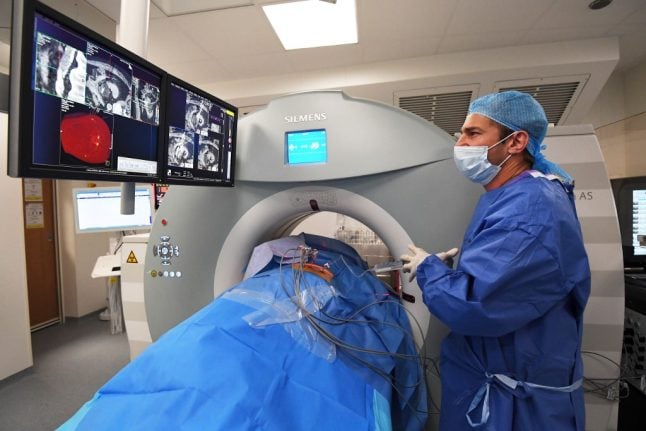Time is of the essence when it comes to cancer and stopping it in its tracks.
But in Spain, a country where bureaucratic holdups are part and parcel of daily life, the repercussions attached to slow public service delivery in the health sector can prove lethal for some.
Spain’s Society of Oncology (SEOM) has just released a study that highlights the huge disparity in waiting times for newly approved cancer medications between the country’s different autonomous communities.
The timeframe from which a groundbreaking treatment is green lighted by Spain’s Ministry of Health to the moment it reaches a cancer patient in hospital varies between 5 to 17 months on average.
The wait is influenced by factors such as where the hospital is located in Spain, whether or not the regional health department has decided to incorporate the new medication into its cancer treatment and even the individual hospital’s modus operandi.
READ MORE:
- These are the 'best' (and 'worst') hospitals in Spain
- Valencia region pledges free healthcare for Brits post-Brexit
- Spaniards are not as healthy as they think
With a one and half-year wait obviously not an option for anyone with the disease, especially those which are particularly aggressive, patients are preferring to pack their bags and move to an address where the holdups are far less.
For this they need to be registered (empadronados) at a municipality that falls within the catchment area of the hospital that can get them the drugs faster.
Technically their names will have to be on a rental contract or title deeds in the desired location to be able to do so, although this can also be achieved in many regions if a person living at said address authorises that they be included in the ‘padrón’.
A total of 84 public hospitals from all of Spain’s 17 autonomous communities (as well as the autonomous city of Ceuta) took part in the study, with 11 new cancer medications and 5 cancer biomarkers (a substance or process that helps to diagnose cancer) used as the basis of the research.
A total of 43 percent of oncologists surveyed told SEOM they had patients who were having to wait excessively long to receive the most cutting-edge treatment and diagnosis methods theoretically available to them through the public system, with some practitioners citing three-year-long holdups for prescriptions that have already been approved by medical authorities.
In fact, the study initially encompassed 146 hospitals across Spain, but 42 percent of them failed to get back to SEOM with the relevant information.
The same confusion that envelops many bureaucratic processes in Spain has seeped into the country’s health system, the research reveals.
In this case, there’s no homogenous nationwide policy or body to call on or complain to. Sometimes it’s the hospital that decides, in other cases it’s the region’s health department, making it unclear for people who can’t afford the wait.

Perhaps for this reason SEOM hasn’t revealed where exactly cancer patients can get the latest treatment fast and easy, as it can vary enormously even within the same city or town.
Even though Spain’s public health system is highly regarded worldwide (9th best internationally in 2015, 19th in 2018 according to The Lancet), the evidence suggests these cancer treatment holdups are nothing new.
Cancer sufferers have been ‘fudging’ their address for years as the only solution available to them for the currently inefficient system, other than actually moving to another part of Spain to sidestep the bureaucratic wait.
Begoña Barragán, president of the Spanish Group of Cancer Patients (GEPAC) told online daily Público she had at one point had 17 patients registered at her home address in order for them to gain access to her local hospital, which offered far shorter waiting periods than on average in Spain.
Her organization encompasses 70 associations across the country which have helped other cancer patients do the same.
“I remember one local minister once warning me ‘I don’t want to find out that you’ve been doing this in our region’, to which I replied ‘don’t worry, you won’t find out,” Barragán told Público.
“None of this has anything to do with medical reasons, it’s all due to administrational and financial causes. Doctors themselves will always offer up the best treatment if it’s up to them.
“This is a post code lottery, a game of chance”.
With this strand of unequal health service delivery increasingly under scrutiny, Spain’s Ministry of Health has shifted responsibility to the country’s autonomous communities, saying it’s up to them to find a solution.
But cancer groups and Spain’s health patient ombudsman are calling instead for a system that is as systematic as paying taxes.
“The rights to health service access, to be cured, to save lives cannot be determined by the place where you live, says the president of Defensor del Paciente Carmen Flores.
“That’s serious discrimination.
“Therefore, Spain’s Ministry of Health must create some order among the autonomous communities, that’s why they’re given funds from the national budget after all”.



 Please whitelist us to continue reading.
Please whitelist us to continue reading.
Member comments